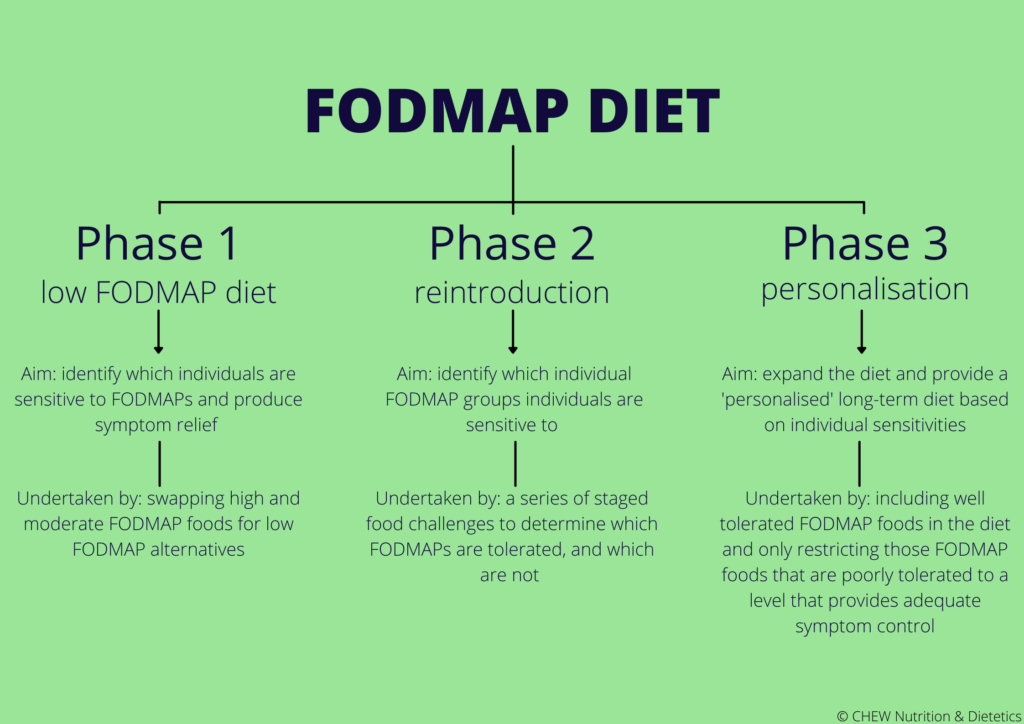Irritable Bowel Syndrome
What is Irritable Bowel Syndrome?
Irritable Bowel Syndrome (IBS) is a gastrointestinal disorder characterised by unexplained abdominal discomfort or pain that is linked with changes in bowel habits. While these are the key symptoms of IBS, other symptoms like bloating, gas, reflux, fatigue and anxiety may also be present.
IBS is known as a functional gut disorder, meaning that although the bowel is not functioning normally, there is no damage being done to the gut medically speaking.
IBS is thought to affect between 7 and 15% of the population and affects twice as many women as it does men.
What causes IBS?
The exact causes of IBS are unknown, but some of the likely factors include:
- changes to how food is moved through the intestine
- hypersensitivity of the nerves in the intestines
- changes to the gut microbiota
- impaired processing of information from the body by the brain
- immune system activation
- low grade inflammation

How is IBS diagnosed?
Unfortunately, there is no blood test or diagnostic test that can be used to diagnose IBS. Instead, symptoms play an important role in forming a diagnosis. This can make the road to diagnosis both frustrating and long for IBS sufferers.
IBS symptoms overlap with several other conditions so typically, your doctor will perform a range of tests including blood tests as well as an endoscopy and/or colonoscopy to rule out other serious conditions like Coeliac Disease, Inflammatory Bowel Disease and cancer. For this reason, it is important you do not self-diagnose but talk to your doctor.
While the process to diagnose IBS can be lengthy, there are some things you can do to assist the process:
- see your GP if you notice ongoing changes to your digestive habits
- make a note of when these changes started
- keep track of the type of symptoms you are experiencing, how often symptoms occur and how severe they are
Note: you may see “tests” advertised that claim to diagnose IBS. These lack clinical validity and are often costly. They include: faecal microbiota testing, faecal short-chain fatty acids testing, IgG food intolerance testing, salivary IgA, intestinal permeability testing and hydrogen breath testing.
How do you treat IBS?
There are a range of treatment options available to help manage IBS including:
- diet therapies
- lifestyle changes
- medications and supplements
- psychological therapies

What is the low FODMAP diet?
The low FODMAP diet is one of the most used diet therapies to assist in the management of medically diagnosed IBS and has been shown to improve symptoms in up to 75% of people. The low FODMAP diet was developed by researchers at Monash University in Melbourne, Australia and aims to determine if your IBS symptoms are sensitive to FODMAPs and if so, which foods and FODMAPs trigger your IBS symptoms.
What are FODMAPs?
FODMAP stands for Fermentable Oligosaccharides, Disaccharides, Monosaccharides And Polyols.
FODMAPs are a collection of short-chain carbohydrates (sugar molecules) that are not absorbed properly in the gut and can trigger symptoms of IBS. This happens in two ways.
Firstly, due to their small size and the fact these molecules are either poorly absorbed, or not absorbed at all, they drag water into the gut by the process of osmosis.
Secondly, the bacteria that live in the large intestine use the FODMAP molecules as food through the process of fermentation, generating gases.
Both processes result in ‘stretching’ of the intestinal wall and trigger the common symptoms of IBS including bloating, cramping and altered bowel movements.
How does the FODMAP diet work?
The FODMAP diet is a 3-phase process.

Importantly, the FODMAP diet is a medical diet and is not meant to be undertaken long-term so it is important to keep progressing through the phases so that your diet is not restricted any longer than it must.
What if the FODMAP diet does not work?
Don’t give up! The FODMAP diet is not the only treatment strategy for IBS. An Accredited Practising Dietitian can help you to try other diet therapies as well as working with your doctor to trial medications, supplements or other lifestyle and psychological interventions.
As an Accredited Practising Dietitian, trained on the use of the a low FODMAP diet for IBS by Monash University, I want to help you! Book an appointment at my Brisbane clinic or via an online telehealth consultation and let me help you regain control of symptoms and find IBS relief.

